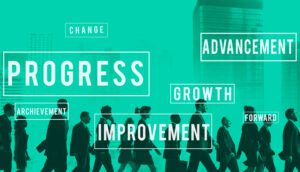Summary

Minimizing Distractions is Key for Effective Time Management
Studies show that multitasking not only reduces the efficacy of the tasks being performed but negates the goal of accomplishing several things at once without diminishing the quality of the tasks. Students need to realize that quality over quantity is fundamental to their academic success and that the brain works much better when it is allowed to focus on only one task before moving to another.
Creating the Perfect Study Environment
The ideal study environment contains a desk, textbooks, a laptop (if applicable), and nothing else. For some students, listening to meditation music or nature sounds helps them study. In addition, programs are available to block distracting websites on the Internet. Software like Focus Me blocks access to social media sites until you have completed your schoolwork.
Other “time traps” that distract students from their academic tasks include studying at the wrong time (too early in the morning or too late at night), studying in a public place, or concentrating on school work for only 10 or 15 minutes at a time. The brain requires at least 45 minutes to fully absorb academic tasks so “cramming” before an exam will not help you pass that exam.
Procrastination–A Student’s Worst Enemy
When someone has access to a variety of options and one of those options incurs large costs relative to immediate benefits (finishing a complex research paper may only reward the student with a “C” grade, for example), that person may procrastinate, or avoid finishing the task because they are afraid of producing low-quality work. Alternately, students procrastinate when they justify certain academic work as irrelevant or “boring” and therefore, unimportant.
Students can minimize their propensity to procrastinate by:
- Listing the consequences of procrastinating v. getting the job done as soon as possible.
- Setting reasonable goals for themselves (completing a research paper in five days instead of two).
- Breaking a task into less formidable parts
- Asking for assistance from instructors or peers
- Expecting to get the job done without expecting perfection.
- Rewarding yourself when you have completed a task.
When students learn to control their tendency to procrastinate by understanding why they procrastinate, they soon discover that problems with prioritizing time are lessened or eliminated.
Avoiding Information Overload
Signs of information overload include “fuzzy” thinking, inability to memorize, making bad decisions, and feeling stressed. When someone is exposed to excessive amounts of information simultaneously, the brain cannot process these bits of information individually. Consequently, the nervous system as a whole becomes overstimulated as the brain struggles to absorb and assimilate a confusing variety of data.
Information or “cognitive” overload affects students who are reading multiple textbooks, studying for multiple exams, and working on several research papers all at one time. In addition, they might also be texting or interacting on social media sites. Information overload occurs because the student has failed to manage their time wisely and now faces a “do or die” situation.
CCI Training Center is Here to Help You Succeed
If you are having difficulty managing your time, don’t hesitate to contact our office today. We are here to assist you in every way possible regarding the success of your academic career.
Program Offered
- Pharmacy Technician Training
- Online Medical Assistant
- Medical Billing and Coding Specialist Program
- Cloud Computing Technician Training
- Computer Network Technician
- Business and Accounting
- Radiology Technician Training
- Medical Assistant Program
- Computer Support Technician
- Cybersecurity Program
- Virtual Assistant Training

This article is written by
Share this article
Program Offered
- Pharmacy Technician Training
- Online Medical Assistant
- Medical Billing and Coding Specialist Program
- Cloud Computing Technician Training
- Computer Network Technician
- Business and Accounting
- Radiology Technician Training
- Medical Assistant Program
- Computer Support Technician
- Cybersecurity Program
- Virtual Assistant Training

This article is written by
Share this article
Related Articles






CCI Training Center Proudly Completes
41 Years in Career Training Services











